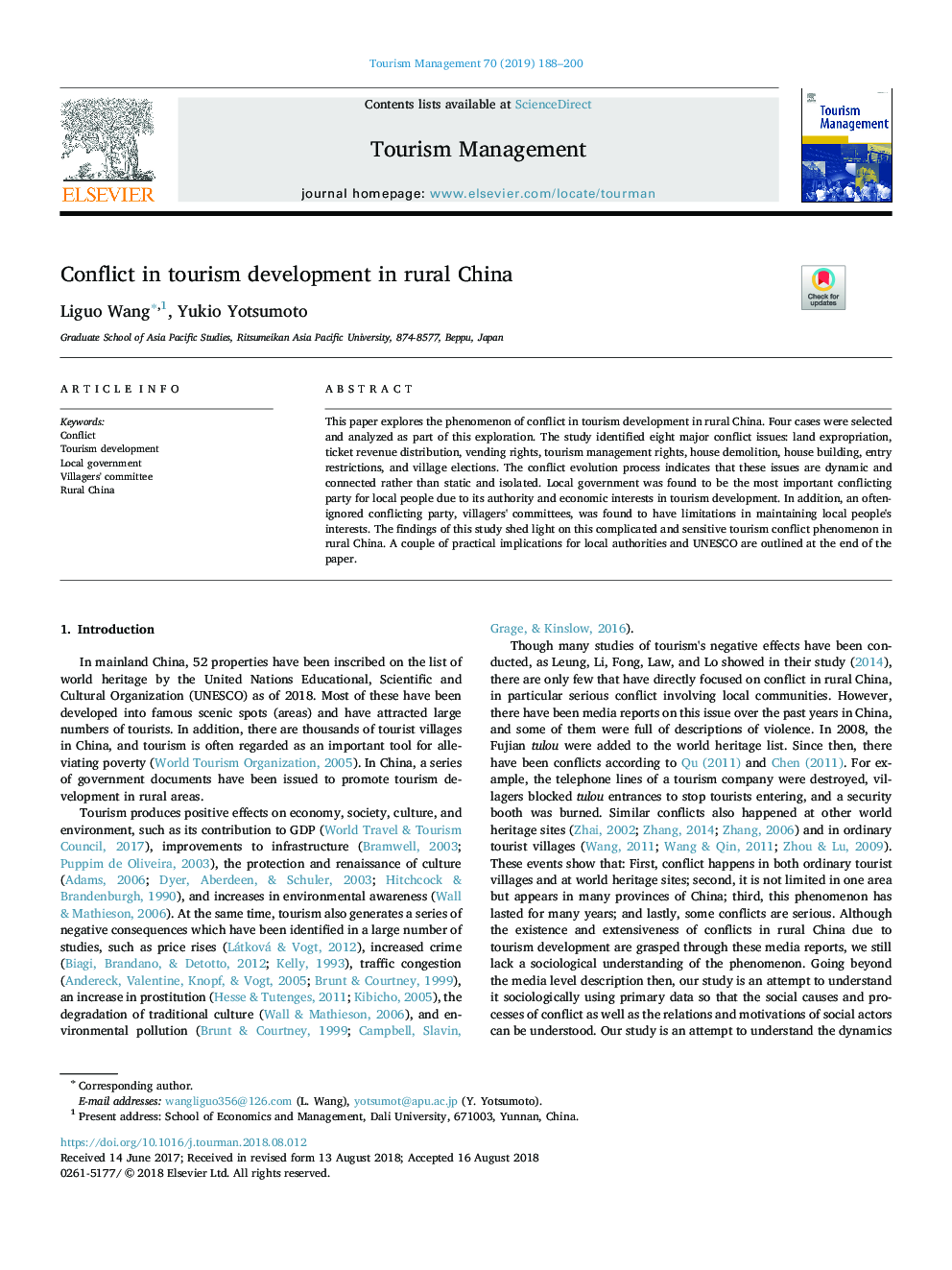| Article ID | Journal | Published Year | Pages | File Type |
|---|---|---|---|---|
| 11005059 | Tourism Management | 2019 | 13 Pages |
Abstract
This paper explores the phenomenon of conflict in tourism development in rural China. Four cases were selected and analyzed as part of this exploration. The study identified eight major conflict issues: land expropriation, ticket revenue distribution, vending rights, tourism management rights, house demolition, house building, entry restrictions, and village elections. The conflict evolution process indicates that these issues are dynamic and connected rather than static and isolated. Local government was found to be the most important conflicting party for local people due to its authority and economic interests in tourism development. In addition, an often-ignored conflicting party, villagers' committees, was found to have limitations in maintaining local people's interests. The findings of this study shed light on this complicated and sensitive tourism conflict phenomenon in rural China. A couple of practical implications for local authorities and UNESCO are outlined at the end of the paper.
Related Topics
Social Sciences and Humanities
Business, Management and Accounting
Strategy and Management
Authors
Liguo Wang, Yukio Yotsumoto,
